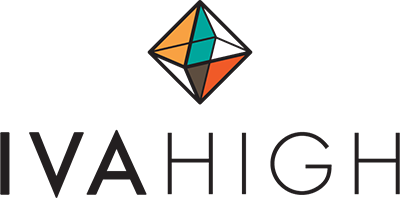Harvard & The Intellectual Virtues: A Conversation with IVA Schools Co-Founder Jason Baehr
When Harvard University launched their Intellectual Vitality Initiative, they painted a picture of their dream school:
“Imagine a campus where ideas spark, conversations thrive, ideas are challenged, and everyone—students, faculty, staff—feels free to speak up, listen, and learn from one another with open minds.”
Sound familiar? They just described what our small, tuition-free high school has built and lived since 2016. Word of our intellectual virtues model, and the work of Co-Founder Dr. Jason Baehr, is spreading far and wide and recently captured the attention of Harvard. Dr. Baehr was invited to Harvard to share the impact of an intellectual virtues education and, of course, we wanted to hear all about it. Enjoy the conversation!
How did your talk at Harvard come about?
I was contacted out of the blue by someone heading up the Intellectual Vitality Initiative at Harvard. He said they’d been reading my work and had found the language of intellectual virtues very helpful for articulating what they’re trying to promote and foster at Harvard. He invited me to give a series of talks, which I did last February.
What did your conversations at Harvard tell you about how people are understanding and applying the intellectual virtues model?
I was kind of shocked by the level of enthusiasm about the model from students to professors to administrators. In our polarized political climate, when it comes to thinking and talking about big ideas, it’s very easy to err in either of two directions: vilifying and dismissing people who disagree with us or remaining neutral and silent. At Harvard, they noticed that students with minority opinions were self-silencing and that this was diminishing the vibrancy of the intellectual culture there. I think they’ve found an intellectual virtues model helpful because it articulates a way of thinking and inquiring that is vigorous and active but not dogmatic, narrow-minded, or intellectually dishonest. It underscores a balance between intellectual autonomy and courage, on the one hand, and open-mindedness, intellectual humility, and curiosity, on the other.
How is the work of the IVA High community connected to Harvard’s interest in intellectual virtues? In what ways do you draw from the success of IVA’s model?
The IVA schools are practicing what Harvard is aspiring to. These schools are systematically designed around providing students with opportunities to practice and grow in intellectual virtues. At Harvard and elsewhere, people are increasingly seeing the need for this, and they are interested in the kinds of principles and practices that make it possible. The IVA high school and middle school are a shining example of these things. In my work, I’m constantly thinking about and drawing on the practices and expertise of IVA teachers and leaders.
What should people know about the value of cultivating intellectual virtues?
It’s really an embarrassment of riches. To begin with, intellectual virtues make you a more interesting person. As one university president put it, “You want the inside of your head to be an interesting place to spend the rest of your life.” If your mind is marked by qualities like curiosity, intellectual autonomy, and intellectual courage, it will be a more interesting place in which to live!
Intellectual virtues also equip us to think and learn well, whether inside or outside a classroom setting. They equip us to ask good questions (curiosity), consider multiple perspectives (open-mindedness), have the courage of our convictions (courage), persist in our efforts to learn and understand (tenacity), and much more. It’s no surprise, then, that qualities like intellectual humility and curiosity are among the qualities most valued by employers today.
Finally, intellectual virtues are also valuable for broadly social reasons. To be a good friend or partner, you have to be attuned to how others are doing (attentiveness), know which questions to ask (curiosity), be able to step outside your own perspective (open-mindedness), and be willing to admit when you’re wrong (humility). Similarly for being a good citizen: in the 21st century, we need to engage the information landscape with carefulness, thoroughness, autonomy, and tenacity; and we need to learn how to disagree well, which requires intellectual humility, open-mindedness, and curiosity.
It’s difficult to keep track of all the ways we can benefit from – and benefit others by – practicing intellectual virtues!
What do you think Harvard’s interest in intellectual virtues means for our school? Our model?
I think it means you’re doing something very right and very important. There’s a growing interest among K-12 schools and colleges and universities in educating for good character, including good intellectual character. You’re on the cutting edge of this movement. The IVA high school and middle school are the only schools I’m aware of in the entire world that are systematically designed around educating for virtuous intellectual character. Therefore, your students are receiving very unique training that will improve the quality of their lives and open many doors.
What next steps do you see (or hope to see) unfolding?
I hope to see the language and concepts of intellectual virtue continue to seep into our popular consciousness and ways of thinking and speaking. Most people equate “character” with moral or civic character. While these dimensions of character overlap with and are importantly related to intellectual character, they aren’t exactly the same thing. As educators and concerned citizens, we need a better appreciation for how our character expresses itself in how we think, learn, engage in difficult conversations, and gather information. The language of intellectual virtues allows us to do just that.
Thank you, Dr. Baehr, for sharing IVA High’s mission with Harvard and continuing to spread the word about the value of an intellectual virtues education.
Enrollment at IVA High is open for the 2025-26 school year – join us!
About IVA High
IVA High is a fully accredited, tuition-free public high school in Long Beach, California with a mission to empower students to think well: creatively, critically, and with a capacity for self-growth. Our learner-centered approach puts students in charge of their education, while dual enrollment and paid internships transform learning into action. Students come for college prep, STEAM and exploratory pathways for their future; they stay for smaller, safer learning in a vibrant, caring community. Get to know us on social media @ivahigh and on the web at www.ivahigh.org IVA High – Curious Minds, Empowered Community – Join us!


